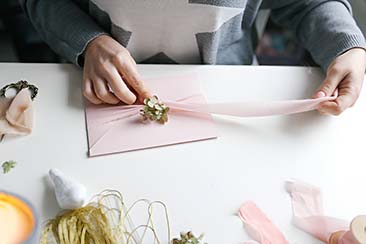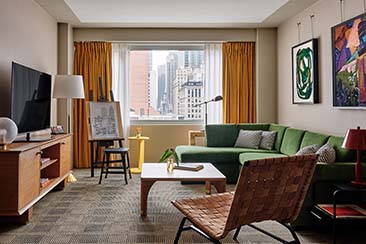Successfully starting a blog takes time and dedication. On top of that, there are things you need to know before you even begin. We’re going to have a look at some of the most significant. So, without further ado, here’s 9 simple steps for starting a blog…
Research Blogging Terms Before You Begin
Blogging is a complicated subject. It doesn’t just mean opening up a word editor and blurting out your thoughts, although that’s not a bad idea. But you need to know about the subject before you even begin.
For example, you wouldn’t start cooking without knowing what boiling or grating means. Design and development can be handled by companies like Unity Online. However, you still need to know about on-page SEO, ranking, and image compression. These are all relatively simple things but can be challenging if you’ve never blogged before.

Think Long and Hard About Your Niche
The most critical element to starting a blog is knowing your niche. Your niche is essentially the subject of your blog. But it’s not as simple as that. Suppose you want to start a blog about cats. But cats is too broad a term, and you won’t rank for simply writing about cats in general.
You need to drill down into the core of the subject to find something that appeals to an audience while at the same time isn’t too vague. Perhaps your niche could be all about adopted or rescued cats. Your posts could relate to it, like “common medical issues with rescued cats.”
Successfully Building Your Fabulous New Blog Takes Time
You can start your blog at any time. But you need to understand that it takes, on average, six months for a blog to gain traction. That means organic traffic coming in and taking a look around. Organic traffic is visitors directed to your blog from search engines.
But how are they directed? Organic visitors are directed to your site by sites like Google based on how relevant your site or posts are to what they searched for. But with all the content constantly being submitted to Google, it takes time for the algorithm to know where to place your new posts.
Decide On Your Chosen Web Hosting Platform
Your web hosting platform is crucial for your blog. Hosting is the server you save your work to. For example, when you write a blog post, it isn’t saved on your PC. It is held on another PC designed for storage. This is called a server. When someone visits your blog, they access the saved file on the server through an IP address.
But you never see the IP. You just see the website address converted by your web browser. There are tons of hosts, but you need one with good uptime, excellent security (like SSL), and excellent customer support. For example, Hostinger is a budget-friendly option offering fast speeds, reliable performance, and a user-friendly control panel with features like free SSL and 24/7 support. Plus, there are plenty of Hostinger tutorial videos available online to guide you through setup and management, making it a solid choice for beginners and small businesses.

Learn How to Use Your Blog Editor
When you choose a blog host platform, you will use an editor for creating posts. You have probably heard of WordPress, Wix, and Squarespace. These are the most common editors around. They are similar, but they’re also different. Take a look around and learn the following:
– Creating menus for posts and pages.
– Creating a new post or page.
– How to install plugins.
– SEO management.
– Image and media uploading.
Modern blog editors have come a long way since the early days. Today, in 2022, even the WordPress Visual Editor is easier than ever before to use. So even if you have no experience, you won’t have a hard time using them if you spend some time getting familiar with how they work.
Choose a Relevant and Modern Theme
Most people overlook this, but a blog’s theme is more important than simply how it looks. Your blog’s code is stored in the theme files. Therefore, they directly impact crucial factors like loading time responsiveness (adapting to different devices) and security.
For the most part, your themes are provided by your platform, but you can buy private ones. However, even the best themes come with extras behind the scenes that can hurt your ranking. For example, unused code and uncompressed images. Use Google PageSpeed Insights to check for issues.

Redesign Your Theme for Your Needs
Moving on from choosing a theme, it’s helpful to redesign your chosen theme to meet the needs of your site. Almost all platforms like WordPress have tools that make it easy to do this. You can change colours and font size and rearrange sidebars. When you redesign a theme, it’s best to spend some time thinking about your site’s content.
For example, a straightforward news site doesn’t need extra stuff and bright colours. People are there for information and don’t care about extras. But a sports site will benefit from sidebar tables of upcoming games, or latest scores.
Plan for Successfully Building Your Fabulous New Blog
The best blogs are the ones that are taken seriously by their owners. You might be stuck on time, but you need to work on your blog almost full time. And that amount of work requires a plan. Your blog plan should begin with a publishing schedule. It’s recommended to post at least 3 times per week.
The good news is you can make your posts on a free Saturday and set them to publish throughout the week. It’s also a good idea to think about the content itself. Perhaps, “How To” posts on Monday, question posts on Wednesdays, and factual posts on Friday.
Work on at least 10 Posts Before Publishing Anything
But before you launch your blog, you need content. You should work on at least 10 posts before you launch. That way, your readers have something to access rather than an empty blog. An empty blog is no fun at all. Also, you provide search engine algorithms with a better snapshot of what your site is about. So they can work better with 10 relevant and niche-specific blog posts. Getting a good SEO score out there early will greatly increase the chance of having your posts rank better in the future. As long as you continue to make relevant, high-quality content.
Summary
Keep a few things in mind before you blog. First, you need to research blogging stuff like SEO. You also need to decide on a niche and make sure you have content before you launch.








